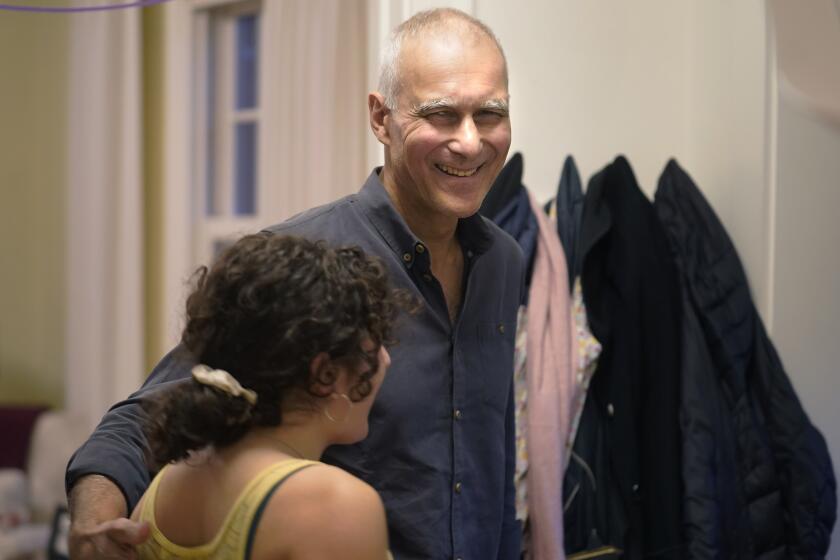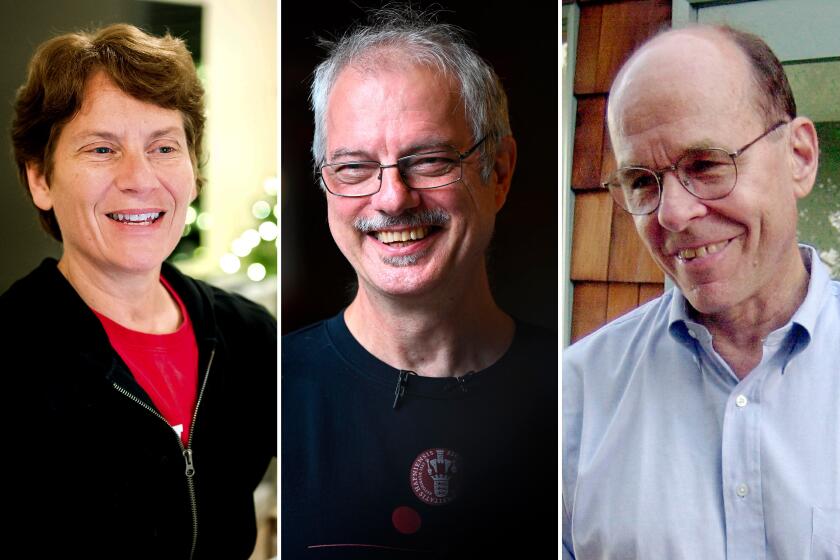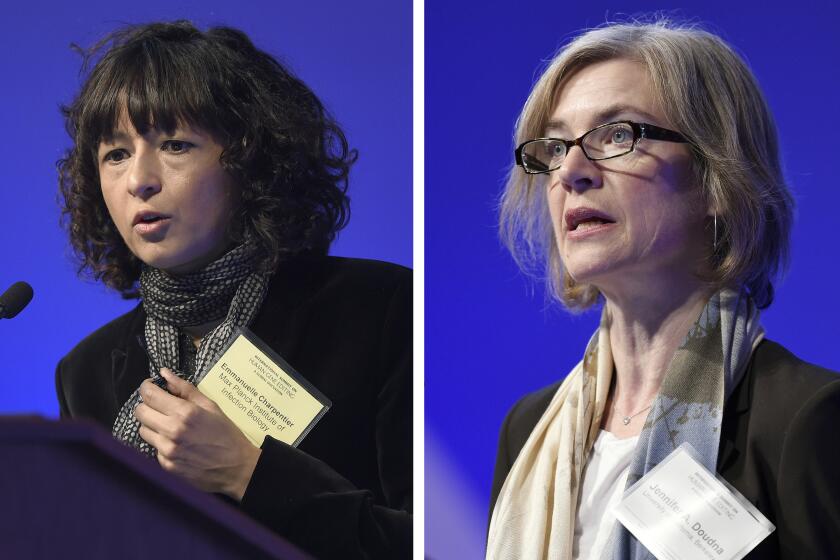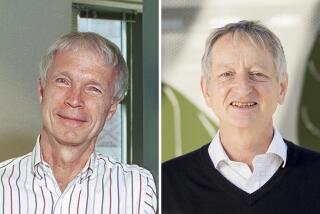Nobel Prize in chemistry awarded to trio who used AI to build proteins, the building blocks of life

Three scientists who discovered powerful techniques to predict and even design novel proteins — the building blocks of life — were awarded the Nobel Prize in chemistry on Wednesday. Their work used advanced technologies, including machine learning, and holds the potential to transform how new drugs are made.
The prize was awarded to David Baker, who works at the University of Washington in Seattle, and to Demis Hassabis and John Jumper, who both work at Google DeepMind, a British American artificial intelligence research laboratory based in London.
Heiner Linke, chair of the Nobel Committee for Chemistry, said the award honored research that unraveled long-standing scientific mysteries.
“That was actually called a grand challenge in chemistry, and in particular in biochemistry, for decades. So, it’s that breakthrough that gets awarded today,” he said.
Three U.S.-based scientists win the 2023 Nobel Prize in chemistry for their work on quantum dots, nanoparticles with many potential applications.
What was the prize given for?
Proteins are complex molecules with thousands of atoms that twist, turn, loop and spiral in a countless array of shapes. The shape of a protein determines its biological function. For decades, scientists have dreamed of being able to efficiently design and build new proteins.
Baker, whose work has received funding from the National Institutes of Health since the 1990s, created a computer program called Rosetta that helped analyze information about existing proteins in comprehensive databases in order to build new proteins that don’t exist in nature.
“It seems that you can almost construct any type of protein now with this technology,” said Johan Aqvist of the Nobel committee.
Hassabis and Jumper created an artificial intelligence model that has been able to predict the structure of virtually all the 200 million proteins that researchers have identified, the committee added.
The duo “managed to crack the code. With skillful use of artificial intelligence, they made it possible to predict the complex structure of essentially any known protein in nature,” Linke said.
The three researchers won the Nobel Prize for pioneering an ingenious tool for building molecules and inventing the field of ‘click chemistry.’
Why this work matters
The ability to custom design new proteins — and better understand existing proteins — could enable researchers to create new kinds of medicines and vaccines. It could also allow scientists to design new enzymes to break down plastics or other waste materials, and to design fine-tuned sensors for hazardous materials.
“I think there’s fantastic prospects for making better medicines — medicines that are smarter, that only work in the right time and place in the body,” Baker told the Associated Press.
One example is a potential nasal spray that could slow or stop the rapid spread of specific viruses, such as COVID-19, he said. Another is a medicine to disrupt the cascade of symptoms known as cytokine storm.
“That was always the holy grail. If you could figure out how protein sequences folded into their particular structures, then it might be possible to design protein sequences to fold into previously never seen structures that might be useful for us,” said Jon Lorsh of the NIH.
Baker said Hassabis and Jumper’s artificial intelligence work gave his team a huge boost.
“The breakthroughs made by Demis and John on protein structure prediction really highlighted to us the power that AI could have. And that led us to apply these AI methods to protein design and that has greatly increased the power and accuracy,” he said.
Benjamin List and David MacMillan won the Nobel Prize in chemistry for developing a new way to make organic molecules. MacMillan trained at UC Irvine.
How the winners reacted
Baker told the AP he found out he won the Nobel during the early hours of the morning alongside his wife, who immediately started screaming.
“So it was a little deafening, too,” he said.
Hassabis said in a statement that “receiving the Nobel Prize is the honor of a lifetime.”
One of Britain’s leading tech figures, he co-founded the AI research lab DeepMind in 2010, which was later acquired by Google. DeepMind’s breakthroughs include developing an AI system that mastered the Chinese game of Go and was able to defeat the game’s human world champion much faster than expected.
Jumper said in the same statement that it was an honor to be “recognized for delivering on the long promise of computational biology to help us understand the protein world and to inform the incredible work of experimental biologists.”
“It is a key demonstration that AI will make science faster and ultimately help to understand disease and develop therapeutics,” Jumper said.
The Nobel Prize in chemistry is awarded to Jennifer Doudna of UC Berkeley and Emmanuelle Charpentier for their work on the CRISPR gene-editing tool.
More about the Nobels
Baker gets half of the $1-million prize money while Hassabis and Jumper share the other half.
It’s the second Nobel prize that has gone to someone with links to Google. Physics prize winner Geoffrey Hinton also previously worked at the tech company, but later quit so he could speak more freely about the potential dangers of artificial intelligence.
Last year, the chemistry award went to three scientists for their work on quantum dots — tiny particles just a few nanometers in diameter that can release very bright colored light and whose applications in everyday life include electronics and medical imaging.
Six days of Nobel announcements opened Monday with Americans Victor Ambros and Gary Ruvkun winning the medicine prize. Two founding fathers of machine learning — Hinton and John Hopfield — won the physics prize.
The awards continue with the literature prize on Thursday. The Nobel Peace Prize will be announced Friday and the economics award on Oct. 14.
The prize money comes from a bequest left by the award’s creator, Swedish inventor Alfred Nobel. The laureates are invited to receive their awards at ceremonies on Dec. 10, the anniversary of Nobel’s death.
Niemann, Corder and Larson write for the Associated Press. Corder reported from The Hague and Larson reported from Washington. Kelvin Chan contributed reporting from London.
More to Read
Sign up for Essential California
The most important California stories and recommendations in your inbox every morning.
You may occasionally receive promotional content from the Los Angeles Times.














